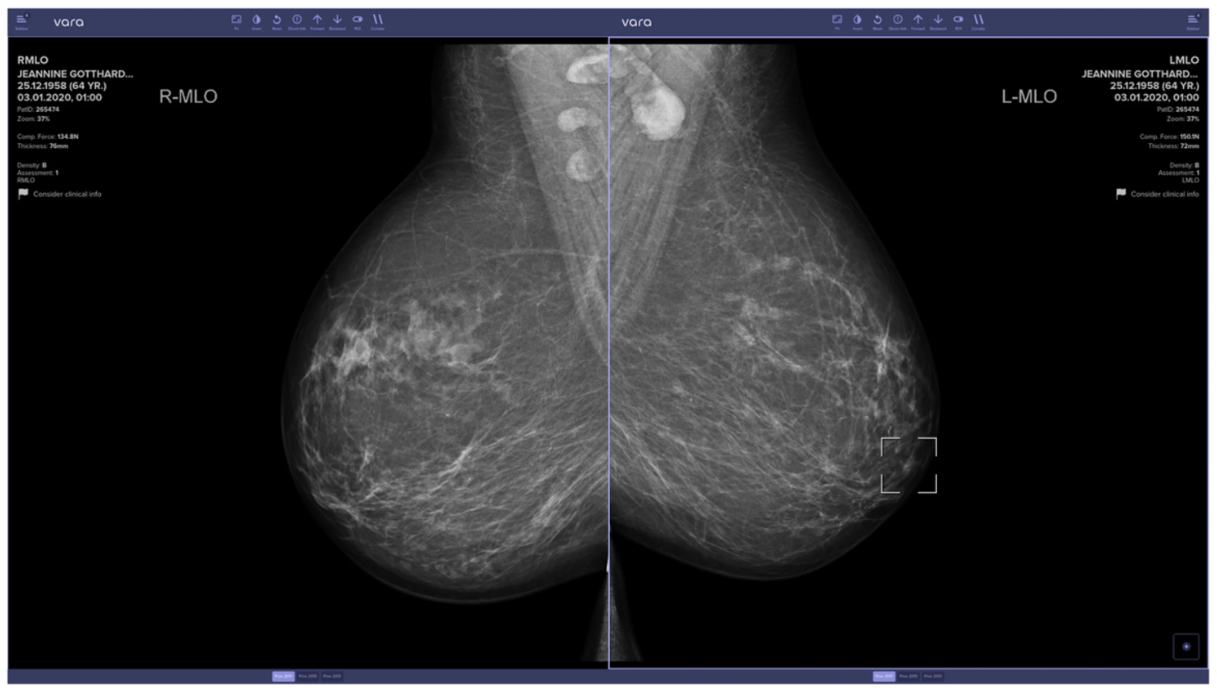AI detects breast cancer better than humans 🩺
Published by Cédric,
Article author: Cédric DEPOND
Source: Nature Medicine
Other Languages: FR, DE, ES, PT
Article author: Cédric DEPOND
Source: Nature Medicine
Other Languages: FR, DE, ES, PT
Follow us on Google News (click on ☆)

If a case is assessed as normal but the security system is triggered, an alert appears.
The suspicious area is then highlighted in the viewer, prompting radiologists to reevaluate the examination.
Breast cancer, one of the most common cancers in women, affects millions of people each year. Despite medical advances, traditional screening has its limitations. A recent study, conducted in real-world conditions, shows that artificial intelligence could address these shortcomings.
A large-scale study
The study, published in Nature Medicine, analyzed nearly 500,000 mammograms performed in Germany. Researchers compared results obtained with and without the assistance of AI software. The data shows a 16.7% increase in breast cancer detection rates thanks to AI, without increasing the rate of false positives.
This improvement is accompanied by a reduction in workload for radiologists. Cases classified as "normal" by AI required 43% less examination time, without compromising diagnostic quality.
An innovative safety tool
The AI software used in the study incorporates a "safety net." This system alerts radiologists when anomalies go unnoticed. Thanks to this feature, 204 additional diagnoses were made, avoiding potential errors.
However, AI is not infallible. Twenty cases of cancer were missed by the software but detected by radiologists. This highlights the importance of maintaining collaboration between humans and machines.
Global implications
The results of this study could influence public health policies. Integrating AI into screening programs could improve efficiency while reducing costs. Researchers hope this technology will be adopted on a larger scale.
Stefan Bunk, co-author of the study, emphasizes that these findings could accelerate the adoption of AI in healthcare systems. The benefits are clear: earlier detection and better patient care.